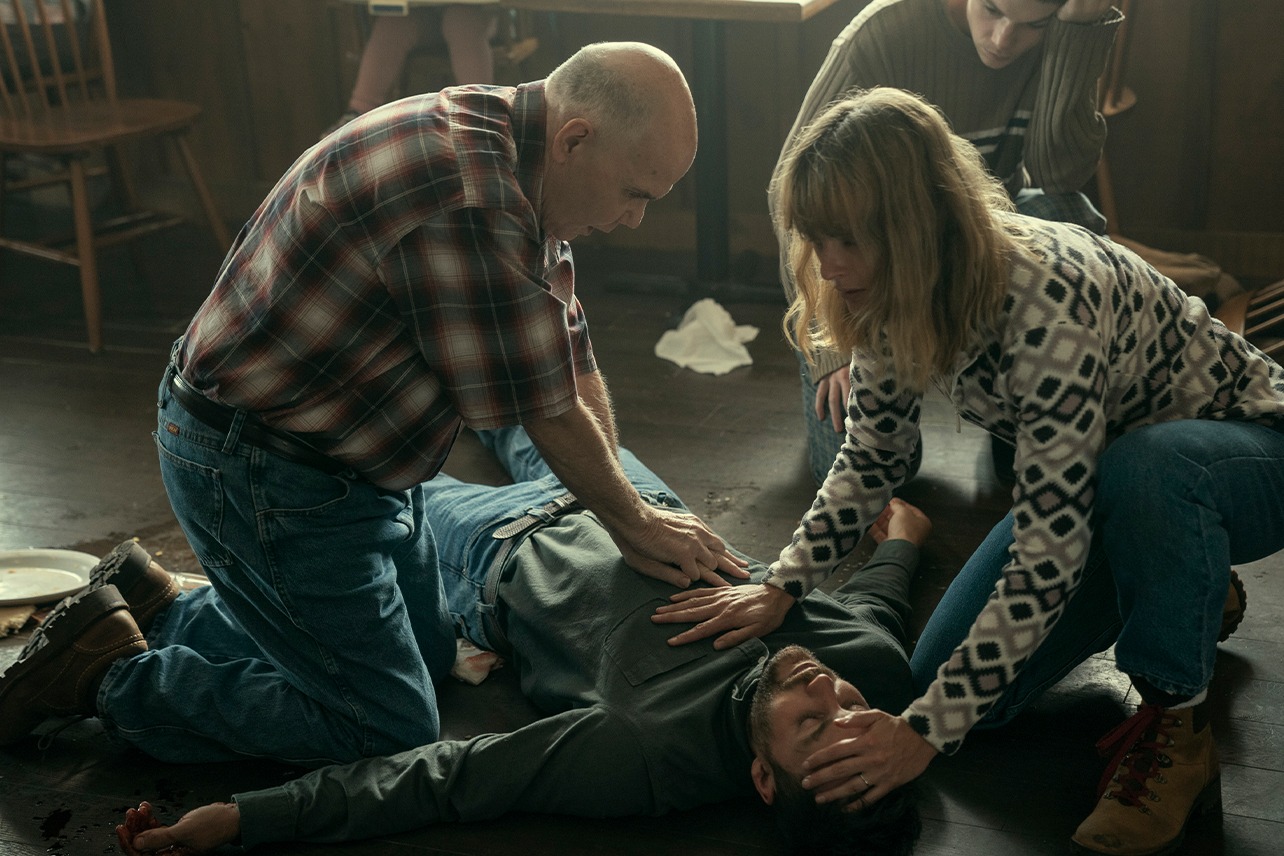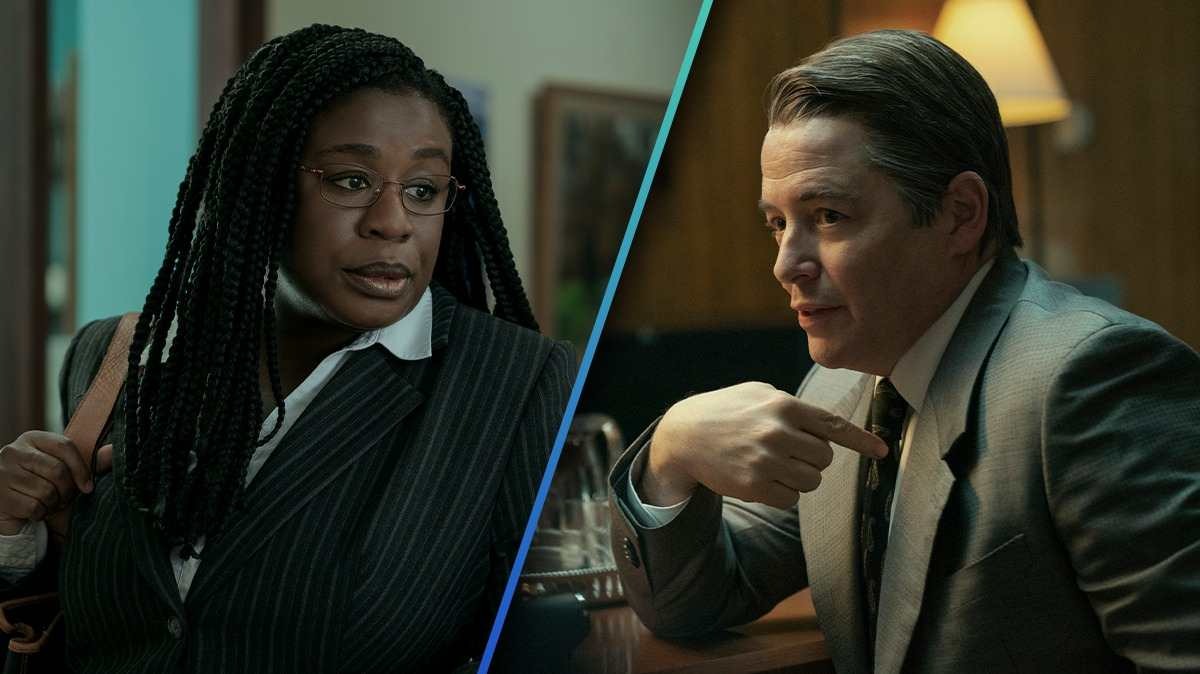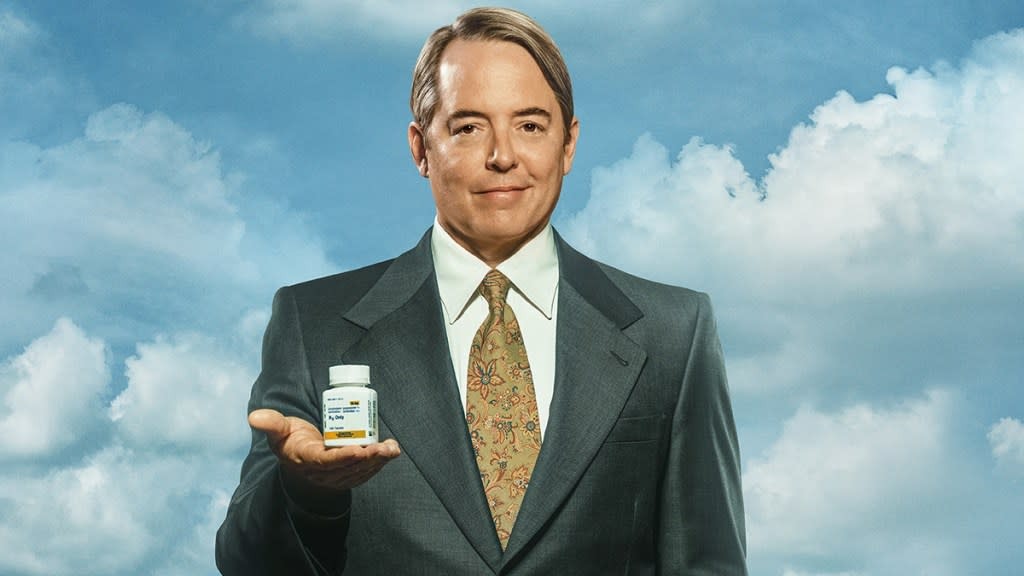The dramatized depiction of Purdue Pharma’s role in the opioid crisis has surged to the top of Netflix’s viewership charts, prompting many to seek clarification about Painkiller’s ending.
The series presents a grim portrayal of the events that fueled the opioid epidemic in the United States, following both the architects of the crisis—such as Purdue Pharma and its president, Richard Sackler—and those who suffered as a result, including individuals who lost their lives to OxyContin addiction.

Since its debut on Netflix, the series has enthralled audiences, leading to widespread curiosity about the real-life basis of Painkiller, the fate of Richard Sackler, and details about the cast. As viewers binge through all six episodes of the limited series, many are now eager to understand how Painkiller concludes.
Painkiller Ending Explained
By the conclusion of the series, Purdue Pharma is compelled to declare bankruptcy following a wave of lawsuits filed against the company. Three high-ranking executives—Friedman, Udell, and Goldenheim—agree to plead guilty to misdemeanor charges related to misbranding the drug.
As the trial approaches, the judge announces that Purdue has settled outside of court. The company’s attorney, Rudy Giuliani, negotiates a deal with U.S. attorney John Brownlee, ensuring Purdue can continue conducting business with the federal government.
A time jump to 2019 follows, where the credits reveal that Purdue Pharma officially declared bankruptcy due to lawsuits from multiple states. As part of a proposed settlement, the Sackler family consented to pay $6 billion.
Richard Sackler’s Fate
Richard Sackler avoids facing criminal prosecution, though the fallout devastates the family business, leaving him to grapple with the repercussions.
At the end of Painkiller, Sackler returns home, where he once again envisions his late uncle, Arthur Sackler, appearing before him—just as he has throughout the series. Arthur berates him for tarnishing the family’s reputation, mockingly commending him for destroying Purdue Pharma.
During this hallucination, Arthur physically assaults Richard, leaving him bruised and bloodied. However, the scene quickly moves back to reality, showing Sackler seated, entirely unscathed.
In the courtroom, Purdue Pharma reaches an agreement with prosecutors, pleading guilty to a single count of fraudulent misbranding of OxyContin. Despite this plea, the settlement does not halt production of the drug, allowing OxyContin to remain on the market under stricter regulations.
The closing moments of the show reference real-life events, stating that Purdue Pharma’s 2019 bankruptcy filing was directly tied to the numerous lawsuits. It also confirms that the Sacklers relinquished ownership of Purdue as part of their $6 billion settlement.
As of March 2023, the final approval for Purdue Pharma’s bankruptcy settlement remains unresolved. No Sackler family member has ever faced criminal charges in connection to OxyContin’s marketing or the overdose deaths linked to the drug.
Glen Kryger’s Tragic End
Glen Kryger succumbs to an OxyContin overdose in the series finale, despite having remained sober for a full month.
His dependency on the drug began following a workplace injury, straining his relationship with his wife and children. As the series progresses, Glen manages to regain some stability, securing employment and residing temporarily in a motel.
However, after being unable to sleep due to noisy neighbors partying through the night, he stumbles upon a bag containing OxyContin. The next morning, he calls his wife, Lily, to ask what she would like for dinner, though his pale and sickly appearance suggests something is wrong. After hanging up, crushed pills can be seen laid out on the bedside table.
Later that day, Glen consumes another dose while sitting in his car, which proves to be fatal. A bystander notices something is wrong and attempts to wake him, but Glen is already lifeless. The police radio soon confirms an apparent overdose.
The Outcome for Edie Flowers
After years of fighting against Purdue Pharma, Edie Flowers fails to secure the justice she sought, as the company’s settlement prevents a more decisive legal reckoning. Frustrated and disillusioned, she decides to walk away from her work, stating she is done playing the game.
Expressing her anger over the court’s decision, she remarks, “That’s how the f**king game’s played. Half a million people die, and guys like Richard Sackler make a phone call in the middle of the night, and absolutely nothing changes.”
Toward the end of the series, Edie reads letters from her brother, Shawn, who is incarcerated for drug dealing. While their full content remains undisclosed, her next visit to him in prison is accompanied by an apology: “I thought you were bad—turned out I didn’t know what bad was. I know now.”
The final scene shows Edie arriving home, where she is greeted by Shawn, who has since been released.

Shannon Schaeffer’s Role in Exposing Purdue
Disillusioned by Purdue Pharma’s actions, Shannon Schaeffer, a member of the company’s sales team, chooses to assist Edie in exposing the organization’s misconduct.
During a night out, she discovers that several colleagues recreationally use OxyContin, contradicting their claims that the drug is non-addictive. This realization prompts her to take action.
Recognizing the harm Purdue has caused, she approaches Edie to apologize and provides an envelope containing incriminating materials, including emails, call notes, and other documents that could be used as evidence. She also agrees to an interview, offering a deeper look into the company’s operations.
The Symbolism of the Smoke Detector
Throughout Painkiller, the smoke alarm serves as a recurring signal during pivotal moments of crisis, particularly when Richard Sackler wrestles with his conscience. The alarm’s presence acts as an unspoken warning regarding the catastrophic consequences of Purdue Pharma’s actions.
The series begins with Sackler awakening to the sound of the alarm, a moment later revealed to be a flash-forward to the day of his deposition regarding Purdue’s role in the opioid epidemic.
As the final episode concludes, Sackler ascends a staircase after experiencing his last vision of Arthur. Once again, the sound of the smoke detector pierces the air. The series then transitions to an image of the Sackler name, with the “S” appearing charred and smoldering before the remaining letters crumble away.



